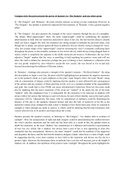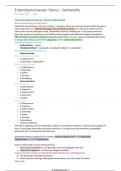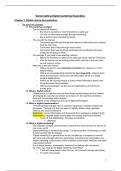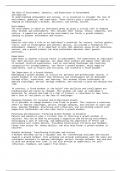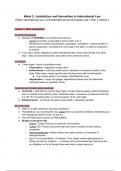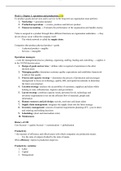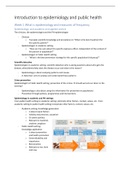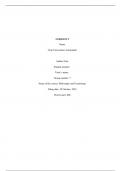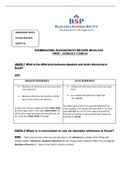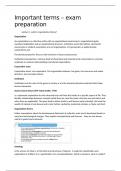In ‘The Emigrée’ and ‘Remains’, the poets present memory as strong yet also weakening. However, in
‘The Emigrée’, the speaker is positively impacted by their memory; in ‘Remains’ it has a greatly negative
effect.
In ‘The Emigrée’, the poet presents the strength of the voice’s memory through the use of a metaphor:
“the bright, filled paperweight”. Here, the noun “paperweight” could be symbolising the speaker's
determination to hold onto her memories and positive ideas of her city; the fact that this object is usually
small yet heavy suggest she feels her memories are strong enough to maintain her previous ideas, even
though she is simply one person against all those in authority who are fiercely trying to change her views.
Also, the circular shape of the “paperweight” could be mirroring the voice’s constantly conflicting ideas
throughout the poem, as she mentally continues to live in her old city whilst always being dragged back to
reality, which is completely the opposite to the idyllic memories she trusts in. Furthermore, the use of the
adjective “bright” implies that the voice is unwilling to hold anything but positive views and will not
allow the truth to darken her memories; perhaps the poet is linking to how Akhmatova, a Russian writer
she was greatly inspired by, also refused to accept the new society she was forced to live in and only
focused on protecting the traditions of Russian culture.
In ‘Remains’, Armitage also presents a strength of the speaker's memory: “His blood shadow”. By using
this description to begin a new line, the poet could be highlighting how prominent the negative memories
are in the speaker's mind, as it puts emphasis on the grim visual imagery. Here, the noun “blood”, along
with its connotations of danger, could be implying that the speaker is most affected by the consequences
of his actions and any memory of them puts him at risk, as it is a constant reminder of his responsibility
and guilt; this could link to how PTSD can cause self-destructive behaviour. However, this noun could
also be implying that the man’s memories of the event are “stained” in his mind; the use of the noun
“shadow” after this emphasises how it is impossible for the memories to be removed, as shadows will
always follow the person that belongs to and will always be part of their identity, just as the man's guilty
conscience will be. Alternatively, this noun, with its connotations of darkness, could be illustrating the
absence of life due to the speakers immoral actions and also the lack of positivity in his life as his
memories remain clear; perhaps this dark colour is linking to how blood turns grey when it's exposed to
sunlight or when attempts are made to remove it, which could be inferring that the man's memories only
worsen when he tries to be positive and forget about the events.
Rumens presents the speaker's memory as faltering in ‘The Emigrée’: “my shadow falls as evidence of
sunlight”. Here, the juxtaposition of light and dark imagery could be demonstrating the conflict between
the voice’s positive memories and the truth she has been told; as a result of this, the speaker seems to
doubt her memories, as the noun "shadow” has connotations of a darkness and could be a representation
of how her city which, like a shadow, has always been a part of her, is now appearing to seem less
wonderful that she remembered. However, the noun "shadow” could also be symbolic of the negativity
and prejudice she faces, and the fact that the shadows elongate at dusk, when there is a lack of light, could
be suggesting that the voice must continue to have faith in her memories and always see the city in a
positive light, otherwise the dominance those in authority have over her will increase, just as the length of
shadows do. In addition, the repetition of the positive noun “sunlight” throughout the poem highlights the

